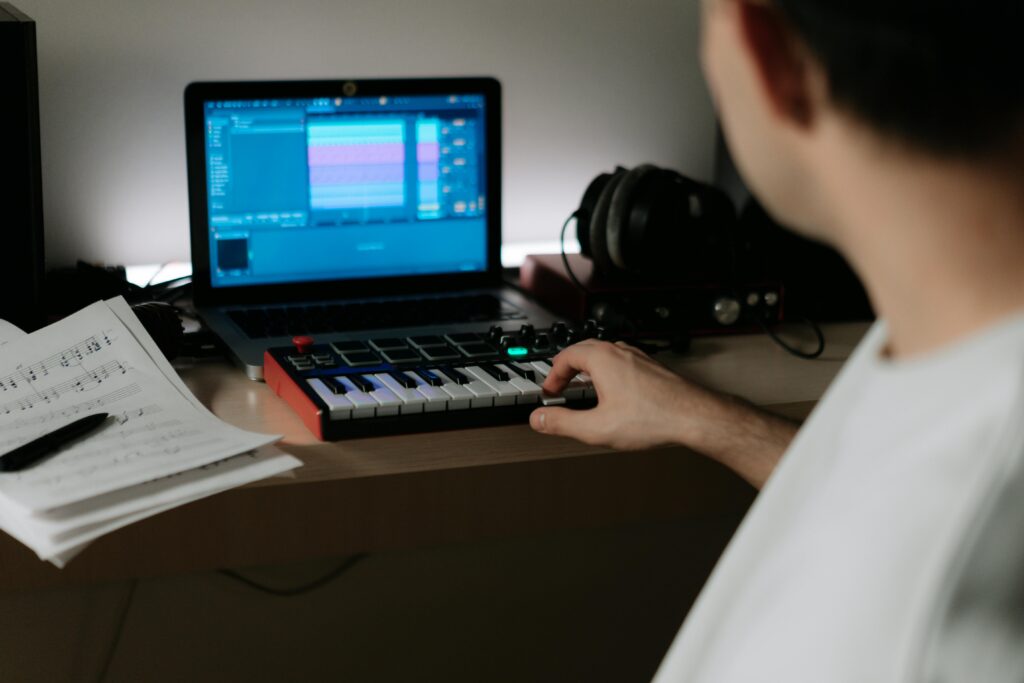From social media promotion to influencer partnerships and data-driven analytics, music marketing encompasses a wide range of tactics and tools that can help artists connect with their audience and grow their brand. In this article, we will explore the key strategies and trends in music marketing that are shaping the industry today.
1. Social Media Marketing
Social media platforms have become powerful tools for music marketing, allowing artists to engage with their fans, share content, and promote their music. Platforms like Instagram, Facebook, Twitter, and TikTok offer artists the opportunity to connect directly with their audience, build a community, and create engaging content that resonates with fans. Social media marketing allows artists to showcase their personality, share behind-the-scenes glimpses, and interact with followers in real-time, fostering a sense of connection and loyalty.
2. Influencer Partnerships
Collaborating with influencers and content creators can be a valuable strategy for music marketing. Influencers have a loyal following and can help artists reach new audiences and expand their reach. By partnering with influencers who align with their brand and target demographic, artists can leverage the influencer’s credibility and reach to promote their music, merchandise, or upcoming events. Influencer partnerships can be particularly effective in reaching younger audiences and niche markets.
3. Content Marketing
Content marketing is another essential aspect of music marketing, involving the creation and distribution of valuable and relevant content to attract and engage audiences. Artists can use various forms of content, such as blog posts, videos, podcasts, and visual media, to share their story, connect with fans, and showcase their music. Content marketing helps artists build a strong online presence, improve search engine visibility, and establish themselves as industry experts, driving organic traffic and engagement.
4. Email Marketing
Email marketing remains a powerful tool for music promotion, allowing artists to communicate directly with their fans and followers. By building an email list and sending regular updates, newsletters, and exclusive content, artists can nurture relationships with their audience, promote new releases or tours, and drive engagement. Email marketing enables artists to personalize their messages, segment their audience, and track performance metrics, providing valuable insights for future marketing campaigns.
5. Data-Driven Marketing
Data-driven marketing involves using analytics and insights to make informed decisions about marketing strategies and campaigns. By analyzing data related to audience demographics, engagement metrics, streaming behavior, and social media interactions, artists can tailor their marketing efforts to reach the right audience with the right message at the right time. Data-driven marketing allows artists to measure the success of their campaigns, optimize performance, and allocate resources effectively to maximize ROI.
6. Streaming Platforms Promotion
With the rise of streaming platforms like Spotify, Apple Music, and YouTube, artists have access to a global audience and new opportunities for music promotion. By optimizing their profiles, creating playlists, and engaging with streaming platform algorithms, artists can increase their visibility, attract new listeners, and boost their streams. Collaborating with streaming platform curators, participating in editorial playlists, and running targeted ad campaigns can further enhance an artist’s presence on streaming platforms.
7. Live Events and Experiential Marketing
Live events, concerts, and experiential marketing activations are powerful tools for music promotion and fan engagement. By organizing live performances, virtual concerts, album release parties, or exclusive fan experiences, artists can create memorable moments, connect with their audience on a personal level, and generate buzz around their music. Live events provide an opportunity for artists to showcase their talent, interact with fans, and build a loyal following that extends beyond digital platforms.
8. Brand Partnerships and Sponsorships
Collaborating with brands and securing sponsorships can be a lucrative avenue for music marketing. By partnering with brands that share their values and target audience, artists can reach new fans, increase exposure, and generate additional revenue streams. Brand partnerships can take various forms, including product placements, endorsements, sponsored content, and co-branded campaigns, providing artists with opportunities to expand their reach and monetize their music.
9. Public Relations and Press Coverage
Public relations and press coverage are essential components of music marketing, helping artists build credibility, generate media buzz, and reach a wider audience. By working with publicists, PR agencies, and media outlets, artists can secure interviews, features, reviews, and press releases that amplify their visibility and establish their brand in the industry. Positive press coverage can enhance an artist’s reputation, attract industry attention, and drive interest from fans and industry professionals.
10. Community Building and Fan Engagement
Building a strong community and fostering fan engagement are fundamental to successful music marketing. By creating a dedicated fan base, artists can cultivate a loyal following that supports their music, attends their shows, and advocates for their brand. Engaging with fans on social media, hosting fan contests, offering exclusive content, and responding to fan feedback are effective ways to build relationships, increase loyalty, and convert casual listeners into devoted fans.
Conclusion
In the competitive landscape of the music industry, effective marketing strategies are essential for artists to stand out, connect with their audience, and achieve success. By leveraging social media, influencer partnerships, content marketing, data-driven insights, and other innovative tactics, artists can create a strong brand, grow their fan base, and maximize their impact in the industry.
Key Takeaways:
- Social media is a vital channel for building a fan base and promoting music.
- Influencer partnerships expand audience reach quickly.
- Data-driven marketing helps target the right listeners and maximize results.
- Streaming platform optimization boosts visibility and plays.
- Fan engagement and community-building create loyalty that sustains careers.
To deepen your expertise, consider enrolling in the NYU x Billboard | Music Industry Essentials online course and certificate program. Stay ahead of the curve and propel your music career to new heights.







